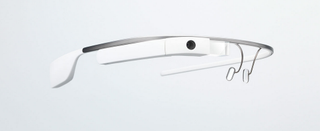Google Glass brainwave-monitoring app cuts need for voice commands
New Google Glass app allows users to take and share pictures simply by using the power of their minds

A free, open source application that allows Google Glass wearers to control the device using brainwaves has been unveiled.
The app allows users to take pictures and videos and post them on social networking sites, such as Twitter and Facebook, using the power of their minds.
The MindRDR app has been devised by London-based firm This Place, and could make wearable tech devices easier for disabled people to use.
In the future, MindRDR could give those with conditions like locked-in syndrome, severe multiple sclerosis or quadriplegia the opportunity to interact with the wider world through wearable technology like Google Glass.
The app uses a Neurosky EEG biosensor to translate brain activity and feed it back into Google Glass to perform its actions. In order to operate the device, users need to concentrate or relax.
Dusan Hamlin, the founder and CEO of This Place, said the firm was intent on finding ways to use brainwave monitoring technology to control the way Google Glass operates since news of the devices first emerged.
"Google Glass is one of the world's most recognisable and popular pieces of wearable technology, but after getting our hands on it, the challenge of connecting it to brainwaves was one we could not resist," he said.
The head-mounted computing device typically requires users to utter voice commands to make it carry out certain actions, and the technology has the potential to open up Google Glass to a wider range of users, including those with conditions - such as locked-in syndrome - which prevent them from speaking.
Get the ITPro. daily newsletter
Receive our latest news, industry updates, featured resources and more. Sign up today to receive our FREE report on AI cyber crime & security - newly updated for 2024.
As such, and as time goes on, the company is hoping to expand the number of functions the device is able to do.
Chloe Kirton, creative director at This Place, explained: "While MindRDR's current capabilities are limited to taking and sharing an image, the possibilities of Google Glass telekinesis are vast.
"In the future, MindRDR could give those with conditions like locked-in syndrome, severe multiple sclerosis or quadriplegia the opportunity to interact with the wider world through wearable technology like Google Glass."
The open source nature of the technology also paves the way for developers to embed their own ideas into it and customise it in other ways.
The app highlights the positive implications of embracing Google Glass, which has suffered something of a backlash in recent months, with UK cinemas moving to ban the devices on piracy grounds and others raising issues about the freedom it gives users to take pictures anad record audio without others knowing.
The MindRDR app is available to download now from GitHub.
MindRDR from This Place Ltd on Vimeo.




